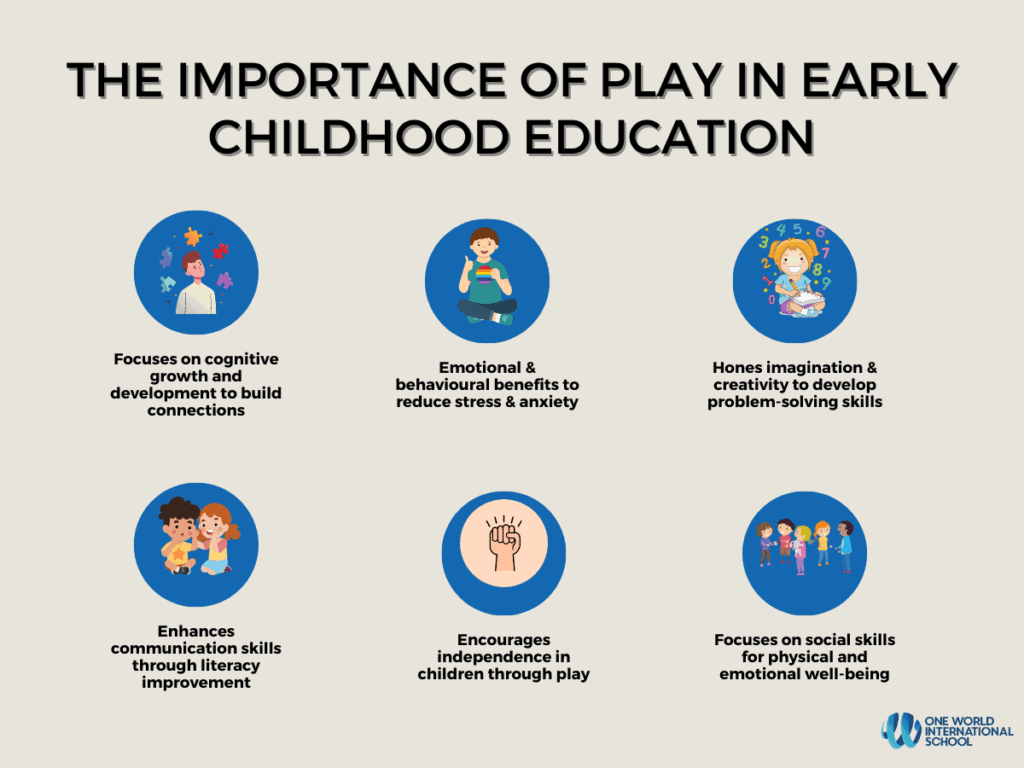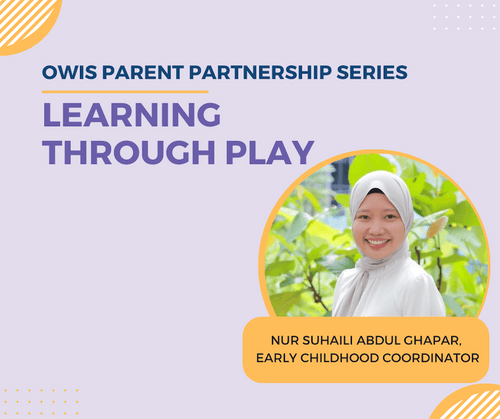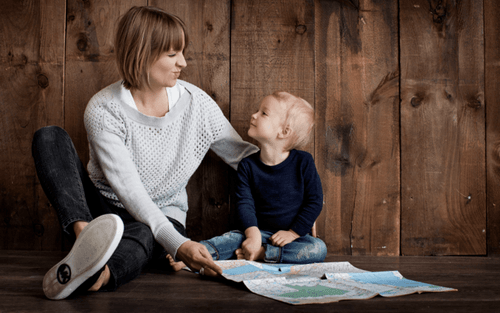In August 2022, our Early Childhood Coordinator, Ms Nur Suhaili Abdul Ghapar (popularly known as Ms Lyn) prepared a session for our Early Childhood parents to take them through why OWIS emphasises play-based learning for young children.
Here are highlights from her presentation.
What is Play and What are the Characteristics of Play-based Learning?
Play is when children are engaging in an activity or they are taking part in an activity for enjoyment. Play-based learning provides opportunities for children to actively engage with people, objects and the environment around them. Learning through play means that when children are playing, they are organising things, interacting with objects, and pretending and investigating as well.
- Actively engaging: Coming up with ideas or learning something new is more likely when children are engaged, when they are so involved in what they are doing that learning comes naturally.
- Socially interactive: Children can play on their own, but when they engage with others while playing, they share their ideas, they get a chance to see something from another perspective, they learn to communicate and engage with others, and together they tackle problems that are important to them.
- Iterative: Learning isn’t always about being told how to do something. Sometimes, it takes a few steps and trial and correction to hone critical thinking and progress down the path of learning.
- Joyful: Learning can be tough for children, but if the learning journey itself is thrilling and joyful, those are huge motivators to continue learning.
- Meaningful: When children truly care about the outcome, learning becomes meaningful. When they work together to solve a problem, not only does it benefit them as individuals, but also their families and the community at large.
The Importance of Play in Early Childhood Education

- Play fosters cognitive growth and development. It helps children to make connections, and build on their prior knowledge to progress along their learning journeys. For example, building a block tower can help children to recognise problems and think about how to solve them. Float and sink toys help children to understand buoyancy. Determining how to share toys helps children to learn basic mathematics.
- Play delivers emotional and behavioural benefits. Much as we as grown-ups watch a movie to relax, play helps reduce stress and anxiety for children.
- Play builds imagination and creativity. When children stretch their imagination through pretend play, they find solutions. These are helpful skills for navigating life and forming relationships with others.
- Play improves literacy. For children who aren’t native speakers of a language, through songs and poems they can improve their listening skills and vocabulary. When they pretend play with others, they learn about communication.
- Play encourages greater independence. Children have little agency over their lives. In the world of play, they get to set the rules and they feel empowered. As parents or educators, we step back and encourage them to take the lead and experiment.
- Play improves social skills, well-being and physical coordination in children.

Examples of Play-based Learning at OWIS

- Dramatic play – For example, in one of our Early Childhood classrooms, a student wanted to have their own shop. So the teacher helped the students to set up a table with some small objects that they pretended was their merchandise to sell and other students pretended to be their customers. They made brisk sales that day!
- Construction play: All our Early Childhood classrooms have building blocks and we as educators use our own creativity to give children more things to build with, such as old boxes etc.
- Outdoor play: In another example, our teachers set up provocations outside of the classroom to practise patterns. Children enjoyed learning outside the classroom and used the natural elements of the environment to form patterns.
- Sensory play: We have sensory tables with soil, pasta, and other textured items and children in our OWIS Early Childhood classrooms love exploring their imagination through play doh.
At OWIS, we believe our young learners should be engaged in the learning environment. In our classrooms, children’s thought processes and interests are stimulated by a provocation from the teacher. The student observes the provocation, forms connections with what he or she already knows and transfers knowledge to new contexts. The role of the teacher in all of this is to make connections between play while integrating the curriculum. We model, support, initiate and facilitate play (such as by asking questions) and we also actively engage in and guide the play. At the end of the school day, through play-based activities, our students would have enjoyed meaningful learning experiences.














